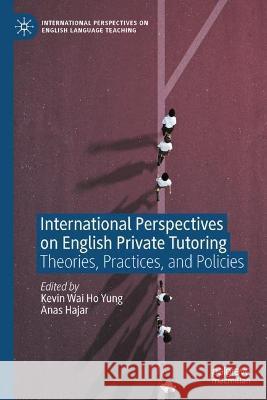International Perspectives on English Private Tutoring: Theories, Practices, and Policies » książka
International Perspectives on English Private Tutoring: Theories, Practices, and Policies
ISBN-13: 9783031268168 / Angielski
International Perspectives on English Private Tutoring: Theories, Practices, and Policies
ISBN-13: 9783031268168 / Angielski
(netto: 576,41 VAT: 5%)
Najniższa cena z 30 dni: 539,74
ok. 22 dni roboczych.
Darmowa dostawa!
This book focuses on private tutoring (sometimes also known as “shadow education”), an important but neglected topic in applied linguistics and language education research. Private tutoring has become a popular out-of-school learning activity worldwide. While its scope and definition are expanding, private tutoring commonly refers to the “paid service students used to supplement their learning of academic subjects at school outside school hours” (Yung, 2019). Around the world, English language is one of the most popularly enrolled subjects in private tutoring, including both English as a first language and English as an additional language (EAL). Despite its popularity and implications for theories, practices, and policies, research on English private tutoring is still in its infancy. This book aims to provide an international perspective on the interface between applied linguistics and comparative education and open up an agenda for discussion in theories, practices, and policies in English language teaching (ELT). It will be of interest to students, scholars, and policy-makers in these and related areas.
This book focuses on private tutoring (sometimes also known as “shadow education”), an important but neglected topic in applied linguistics and language education research. Private tutoring has become a popular out-of-school learning activity worldwide. While its scope and definition are expanding, private tutoring commonly refers to the “paid service students used to supplement their learning of academic subjects at school outside school hours” (Yung, 2019). Around the world, English language is one of the most popularly enrolled subjects in private tutoring, including both English as a first language and English as an additional language (EAL). Despite its popularity and implications for theories, practices, and policies, research on English private tutoring is still in its infancy. This book aims to provide an international perspective on the interface between applied linguistics and comparative education and open up an agenda for discussion in theories, practices, and policies in English language teaching (ELT). It will be of interest to students, scholars, and policy-makers in these and related areas.











